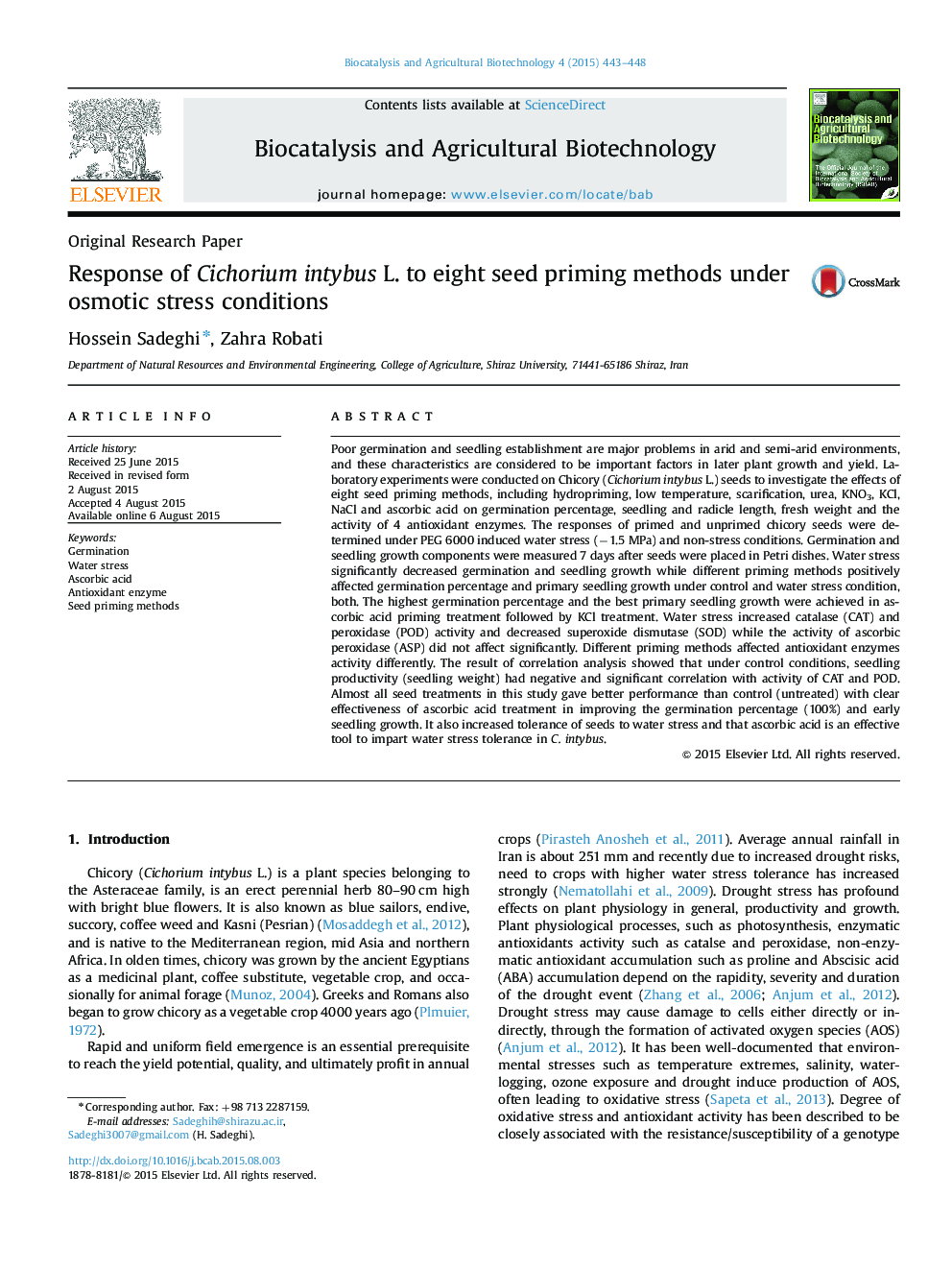| کد مقاله | کد نشریه | سال انتشار | مقاله انگلیسی | نسخه تمام متن |
|---|---|---|---|---|
| 2075291 | 1079328 | 2015 | 6 صفحه PDF | دانلود رایگان |

Poor germination and seedling establishment are major problems in arid and semi-arid environments, and these characteristics are considered to be important factors in later plant growth and yield. Laboratory experiments were conducted on Chicory (Cichorium intybus L.) seeds to investigate the effects of eight seed priming methods, including hydropriming, low temperature, scarification, urea, KNO3, KCl, NaCl and ascorbic acid on germination percentage, seedling and radicle length, fresh weight and the activity of 4 antioxidant enzymes. The responses of primed and unprimed chicory seeds were determined under PEG 6000 induced water stress (−1.5 MPa) and non-stress conditions. Germination and seedling growth components were measured 7 days after seeds were placed in Petri dishes. Water stress significantly decreased germination and seedling growth while different priming methods positively affected germination percentage and primary seedling growth under control and water stress condition, both. The highest germination percentage and the best primary seedling growth were achieved in ascorbic acid priming treatment followed by KCl treatment. Water stress increased catalase (CAT) and peroxidase (POD) activity and decreased superoxide dismutase (SOD) while the activity of ascorbic peroxidase (ASP) did not affect significantly. Different priming methods affected antioxidant enzymes activity differently. The result of correlation analysis showed that under control conditions, seedling productivity (seedling weight) had negative and significant correlation with activity of CAT and POD. Almost all seed treatments in this study gave better performance than control (untreated) with clear effectiveness of ascorbic acid treatment in improving the germination percentage (100%) and early seedling growth. It also increased tolerance of seeds to water stress and that ascorbic acid is an effective tool to impart water stress tolerance in C. intybus.
Figure optionsDownload as PowerPoint slide
Journal: Biocatalysis and Agricultural Biotechnology - Volume 4, Issue 4, October 2015, Pages 443–448